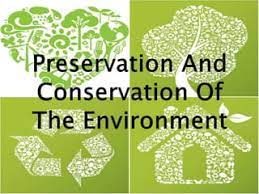
Environmental Conservation and Preservation for Teachers
Certificate = Yes
80 EUR per day/participant
Language = English
Duration = 5 – 7 Days
Location = Antalya / TÜRKİYE
Description
Environmental Conservation and Preservation for Teachers
We have begun to recognize the importance of conserving and preserving our environment for future generations. Conservation is the care and protection of the earth so it can persist for future generations through using natural resources responsibly. Though the word “conservation” is used interchangeably with “preservation” by many, preservation attempts to keep the earth safe through protecting the environment from harmful human activities. By teaching about environmental conservation and preservation, educators will give students the opportunity to learn about the two different approaches to keeping our planet safe and the importance of protecting our earth which will ideally help them become more engaged outside the classroom regarding confronting environmental issues!
DAILY SHEDULE OF ENVIRONMENTAL CONV-SERVATION AND PRESERVATION
Note: The course plan includes 30 hours of morning sessions, followed by city tours and fun activities in the afternoons.
DAY 1: Introduction to Environmental Conservation
Morning Session (8:30 AM – 1:00 PM):
• Welcome and Registration
• Overview of Environmental Conservation and Preservation
• Importance of Environmental Education in Schools
• Biodiversity and Ecosystems: Understanding the Basics
• Break and Networking
• Strategies for Teaching Environmental Concepts Effectively
• Designing Engaging Lesson Plans
Afternoon City Tour (2:00 PM – 5:00 PM):
• Guided city tour focusing on local environmental initiatives
• Visit to a nearby conservation center or nature reserve
Day 2: Climate Change Education
Morning Session (8:30 AM – 1:00 PM):
• Causes and Effects of Climate Change
• Integrating Climate Change Education into Curriculum
• Practical Activities and Experiments for Understanding Climate Change
• Break and Networking
• Solutions and Mitigation Strategies
• Collaborative Workshop: Creating Climate Change Lesson Plans
Afternoon Fun Activity (2:00 PM – 5:00 PM):
• Team-building nature scavenger hunt or eco-friendly crafting workshop
Day 3: Sustainable Practices in Education
Morning Session (8:30 AM – 1:00 PM):
• Introduction to Sustainable Practices in Education
• Green School Initiatives
• Waste Reduction and Recycling Programs
• Break and Networking
• Energy Conservation in Schools
• Workshop: Designing a Green Action Plan for Your School
Afternoon City Tour (2:00 PM – 5:00 PM):
• Visit to local eco-friendly businesses or sustainable development projects
Day 4: Outdoor Education and Field Trips
Morning Session (8:30 AM – 1:00 PM):
• The Role of Outdoor Education in Environmental Learning
• Planning and Conducting Safe and Educational Field Trips
• Incorporating Nature into Everyday Teaching
• Break and Networking
• Case Studies: Successful Outdoor Education Programs
• Group Activity: Planning an Environmental Field Trip
Afternoon Fun Activity (2:00 PM – 5:00 PM):
• Outdoor team-building activities or a guided nature hike
Day 5: Community Engagement and Action
Morning Session (8:30 AM – 1:00 PM):
• The Importance of Community Engagement in Environmental Education
• Collaborating with Local Organizations
• Empowering Students as Environmental Advocates
• Break and Networking
• Interactive Workshop: Creating Community Projects
• Developing Action Plans for Sustainable Education
Afternoon Closing Ceremony and Celebration (2:00 PM – 5:00 PM):
• Certificate distribution
• Reflections and sharing of insights
• Networking reception with local environmental organizations
Throughout the course, there will be a balance of theoretical learning, practical application, and hands-on experiences to provide teachers with the knowledge and tools needed to integrate environmental conservation and preservation into their teaching practices. The city tours and fun activities aim to provide a holistic and enjoyable learning experience.
Educational Objectives:
1. Deep Understanding of Environmental Conservation:
• Participants will gain a comprehensive understanding of key concepts in environmental conservation and preservation.
2. Integration of Environmental Education in Curriculum:
• Teachers will learn effective strategies for seamlessly integrating environmental education into their existing curriculum.
3. Climate Change Awareness and Mitigation:
• Participants will acquire knowledge about the causes and effects of climate change and develop strategies for teaching climate change concepts effectively.
4. Sustainable Practices in Education:
• Teachers will explore sustainable practices in education, including green school initiatives, waste reduction, and energy conservation.
5. Outdoor Education and Field Trip Planning:
• Participants will understand the role of outdoor education, learn to plan safe and educational field trips, and incorporate nature into daily teaching.
6. Community Engagement and Advocacy:
• Teachers will explore the importance of community engagement in environmental education and learn to empower students as environmental advocates.
7. Practical Lesson Plan Development:
• Participants will actively engage in creating practical and engaging lesson plans for environmental conservation, climate change, and sustainability.
8. Action Planning for Sustainable Education: • Teachers will develop action plans for implementing sustainable education practices in their schools and communities.
Educational Outcomes:
1. Increased Environmental Literacy:
• Participants will leave with increased knowledge and awareness of environmental conservation and preservation principles.
2. Integrated Environmental Curriculum:
• Teachers will have developed the skills to seamlessly integrate environmental education into their curriculum, fostering a holistic learning experience.
3. Climate Change Education Competence:
• Participants will demonstrate competency in teaching climate change concepts, including causes, effects, and mitigation strategies.
4. Implementation of Sustainable Practices:
• Teachers will be equipped to implement sustainable practices within their educational institutions, contributing to a greener and eco-friendly environment.
5. Enhanced Outdoor Education Skills:
• Participants will develop skills in planning and conducting safe and educational outdoor experiences, enriching students’ learning through direct interaction with nature.
6. Empowered Environmental Advocates:
• Teachers will feel empowered to engage students as advocates for the environment, promoting a sense of responsibility and stewardship.
7. Practical Lesson Plans:
• Participants will leave with a portfolio of practical and effective lesson plans for teaching environmental concepts.
8. Action Plans for Sustainable Education:
• Teachers will have developed personalized action plans for implementing sustainable education practices, creating lasting impact in their schools and communities.
